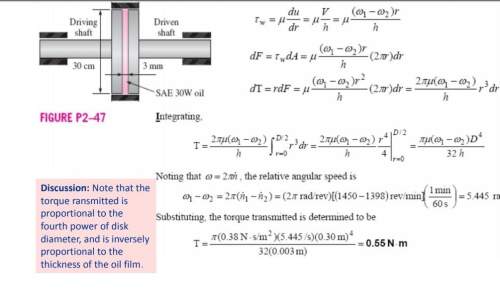
Physics, 23.06.2019 03:30, anthonyfr10004
Ineed to answer this problem but i lack in knowledge, what should i study to answer this problem? i have never used derivatives in a physics problem so i'm not sure what's happening and i can't find videos explaining.


Answers: 2
Other questions on the subject: Physics

Physics, 22.06.2019 19:30, chelseayazzie16
What you see with your eyes is a form of energy. a. light b. heat c. chemical d. electrical
Answers: 2

Physics, 22.06.2019 23:50, jazzzzhands21
An alpha particle with kinetic energy 12.5 mev makes a collision with lead nucleus, but it is not "aimed" at the center of the lead nucleus, and has an initial nonzero angular momentum (with respect to the stationary lead nucleus) of magnitude l = p0 b, where p0 is the magnitude of the initial momentum of the alpha particle and b=1.40×10−12 m. (assume that the lead nucleus remains stationary and that it may be treated as a point charge. the atomic number of lead is 82. the alpha particle is a helium nucleus, with atomic number 2.) what is the distance of closest approach?
Answers: 2


Physics, 23.06.2019 02:30, mjam85877
Two 1.20-m nonconducting wires meet at a right angle. one segment carries + 2.50 µc of charge distributed uniformly along its length, and the other carries - 2.50 µc distributed uniformly along it, as shown in fig. 21.50. ( a. find the magnitude and direction of the electric field these wires produce at point p, which is 60.0 cm from each wire. ( b. if an electron is released at p, what are the magnitude and direction of the net force that these wires exert on it?
Answers: 3
Do you know the correct answer?
Ineed to answer this problem but i lack in knowledge, what should i study to answer this problem? i...
Questions in other subjects:

Mathematics, 08.07.2021 20:00


Health, 08.07.2021 20:00



Mathematics, 08.07.2021 20:00


Mathematics, 08.07.2021 20:00

Mathematics, 08.07.2021 20:00

Mathematics, 08.07.2021 20:00






